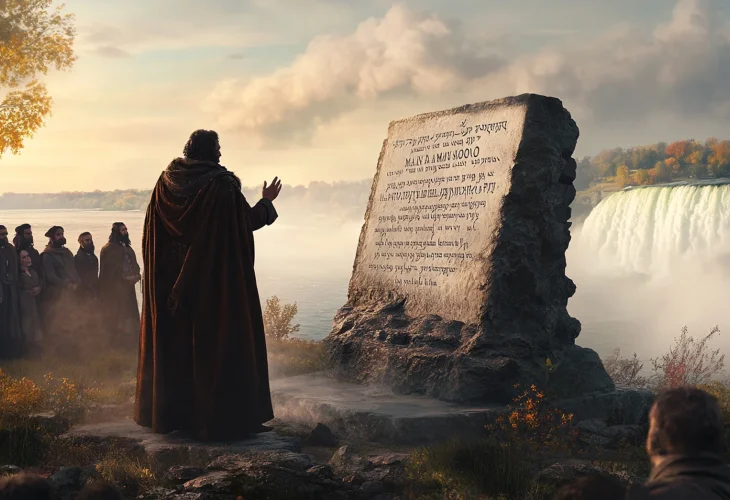History and Archaeology
The Man Who Tried to Build a Jewish State in New York
Proud of both his Jewishness and his American patriotism, Emanuel Noah was a visionary far ahead of his time

He dressed as a gentleman, spoke flawless English, and moved with ease through the political halls of young Washington. As a New York sheriff and a prominent member of the Republican-Democratic Party, Emanuel Noah was every bit the proud American. Yet deep in his heart burned an unshakable pride in his Jewish heritage, a pride he never hid. Emanuel Noah was a remarkable and colorful figure in American Jewish history, though his name is little known today.
Born in Philadelphia in 1785 to a German father and a Spanish-Portuguese mother, Emanuel was raised by his grandfather, who hoped to train him as a jeweler. But he had little passion for the trade. Instead, he turned to law while also launching a successful career in journalism and politics with the Democratic-Republican Party, then one of America’s two major parties. Even in his twenties, he was no ordinary journalist, he was a deeply patriotic one. During the War of 1812, at only 26, he wrote passionate editorials calling for war with Britain.
In politics, Emanuel always spoke of his Jewish identity with pride. In 1812, when he applied to serve as U.S. consul, he made sure to note that he was Jewish, explaining that his appointment would send a message to Jews and nations everywhere that America did not discriminate by religion and that positions were given purely on merit. He was appointed consul in Tunis, where he worked to free American citizens captured by the ruler of Algeria. For him, this was not only part of his job, it was also the fulfillment of the Jewish mitzvah (commandment) of pidyon shvuyim, redeeming captives. While he succeeded in freeing them, the cost of the mission angered his superiors, leading to his dismissal.
Afterward, Emanuel settled in New York, where he founded several newspapers, was elected sheriff of New York City, and even served as a judge. But it was his boldest idea that made him truly unique: a century before Theodor Herzl and the birth of political Zionism, Emanuel tried to create a Jewish state he called “Ararat.”
Emanuel dreamed of a global Jewish national revival, restoring the Jewish people’s greatness. He imagined himself as a modern-day Moses, gathering Jews from around the world and leading them to a place of safety. He bought “Grand Island” in the Niagara River, just south of the famous waterfalls, and believed that with tall buildings, it could house six million Jews.
In 1825, he staged a grand cornerstone-laying ceremony for the city of Ararat. Wearing ceremonial robes, he gave an emotional speech about Jews living in peace there until salvation came. Declaring himself “Judge of Israel,” he had the cornerstone inscribed in Hebrew with the Shema: “Hear, O Israel: Hashem is our God, Hashem is One.” The English inscription read: “Ararat, a city of refuge for Jews, founded by Emanuel Noah in the month of Tishrei in the year 5586 from Creation, September 1825, in the 50th year of America’s independence.”
But the dream went unfulfilled. When great waves of Jewish immigration from Europe to America came decades later, the immigrants did not settle in Ararat, they scattered across cities throughout the United States. Today, the only remnant of his dream is the cornerstone, now displayed in the Buffalo Historical Museum.
Years later, reflecting on the project’s failure, Emanuel wrote that the only true place for Jewish national revival was in Eretz Yisrael (the Land of Israel). “Jews need to do something for themselves,” he wrote, predicting that Syria (which then included the territory of modern Israel) could be repurchased “under the auspices of France and Britain… repopulating Syria is a reasonable act.”
Emanuel Noah died at 76 from a stroke. He was a pioneer in many ways, a man whose deep Jewish identity and deep American patriotism were not in conflict but in harmony. In his time, this was unusual, but in the generations that followed, his example would become far more familiar in the American Jewish world.

